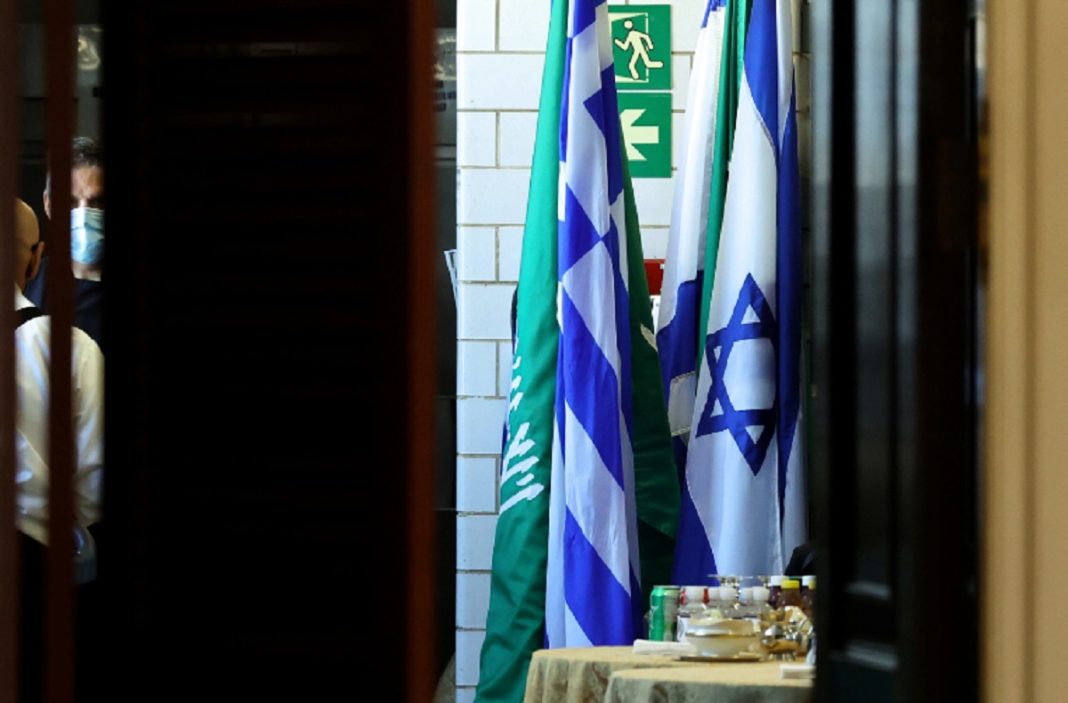Netanyahu and bin Salman spoke on the phone twice in recent weeks. Bahraini Foreign Minister Abdullatif bin Rashid Al Zayani facilitated the calls.
The source, speaking on condition of anonymity, said, the 73-year-old Israeli leader and Saudi Arabia’s de facto ruler held talks before and after last week’s Arab League meeting in the Red Sea port city of Jeddah to discuss the possibility of rapprochement.
The leaders also did not discuss the possibility of direct flights from the Israeli-occupied territories to Saudi Arabia for the annual pilgrimage Hajj to the holy city of Mecca this year.
According to the N12 news site, Saudi authorities presented a list of demands for Israeli concessions vis-à-vis the Palestinians.
Those demands include allowing the Palestinian security apparatus to be strengthened at the expense of Israeli military forces in the occupied West Bank, the report said.
MBS also requested Palestinian security control over al-Aqsa Mosque compound and the Church of the Holy Sepulcher in the occupied Old City of al-Quds.
Last week, Israeli foreign minister Eli Cohen told The Jerusalem Post newspaper normalization with Saudi Arabia was “not a matter of if, but of when. We and Saudi Arabia have the same interests.”
He said White House Coordinator for the Middle East and North Africa Brett McGurk and Special Presidential Coordinator for Global Infrastructure and Energy Security Amos Hochstein had spoken to the Saudi crown prince about détente with Israel during their visit to Jeddah earlier this month.
Normalization with Saudi Arabia could come within the next six months to a year, though senior Saudi officials have always said publicly that headway must be made between Israel and the Palestinians for Riyadh to take that step, Cohen told N12 Saturday night.
“The Palestinian issue was and remains the central issue for Arab countries, and it is at the top of the kingdom’s priorities,” MBS said at the Arab League summit in Jeddah.
“We will not delay in providing assistance to the Palestinian people in recovering their lands, restoring their legitimate rights and establishing an independent state on the 1967 borders with East al-Quds as its capital,” he noted.
Saudi Arabia did not show any opposition when the United Arab Emirates, Bahrain, Sudan and Morocco in 2020 became the first Arab countries in decades to normalize relations with Israel in a deal brokered by former US President Donald Trump.
The oil-rich kingdom is yet to jump on the bandwagon, but the two sides have seen growing contacts and de-facto rapprochement in recent years, despite claims that it is committed to the 2002 so-called Arab Peace Initiative, which conditions normalizing ties with Israel on the establishment of an independent, sovereign Palestinian state within the 1967 borders.
The Riyadh regime in November 2020 granted permission for Israeli airlines to use its airspace, hours before the first Israeli flight to the UAE was set to take off.
Palestinian leaders, activists and ordinary people have repeatedly rejected Arab-Israeli normalization deals as “a stab in the back of the Palestinian cause and the Palestinian people.”
